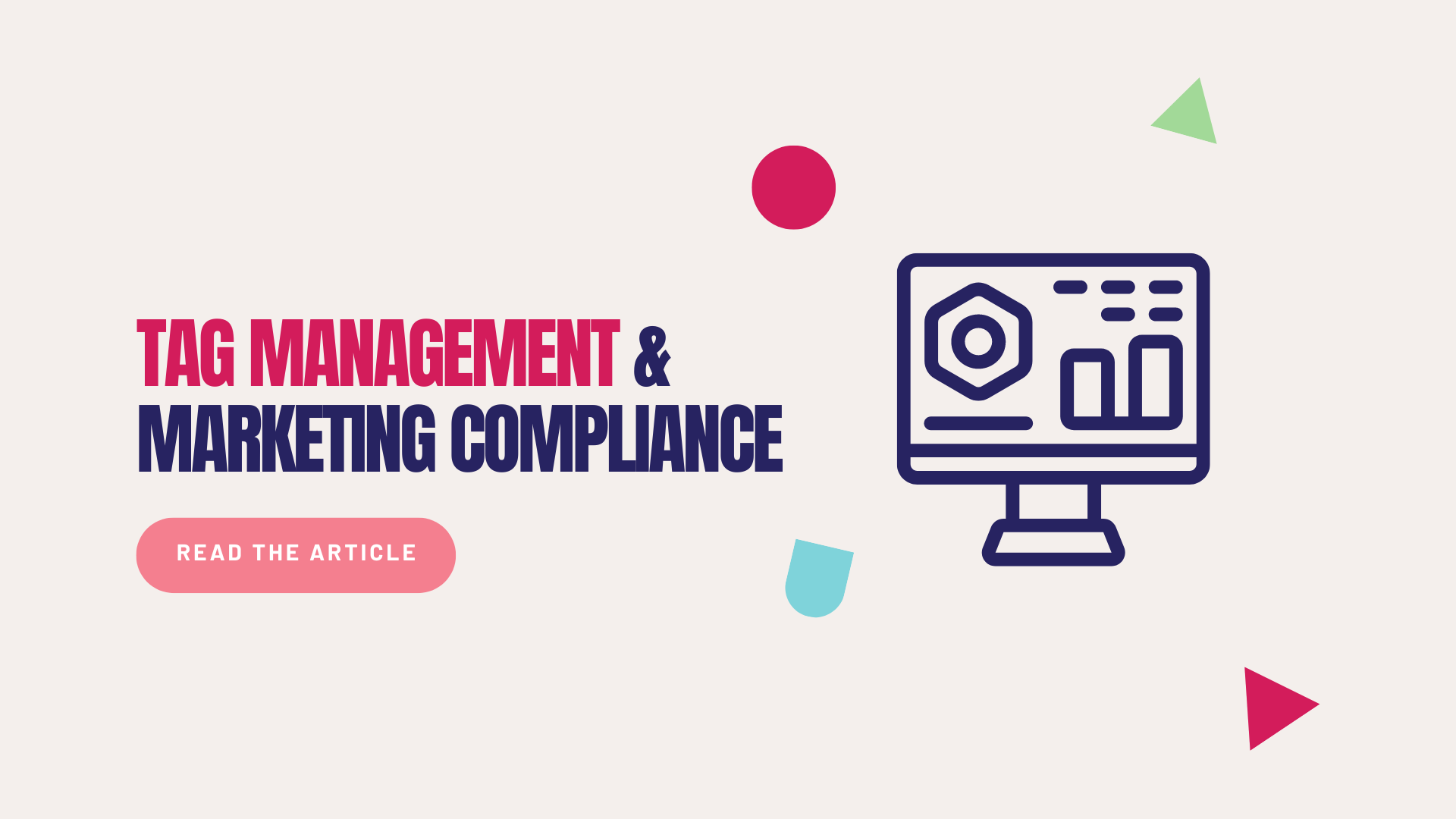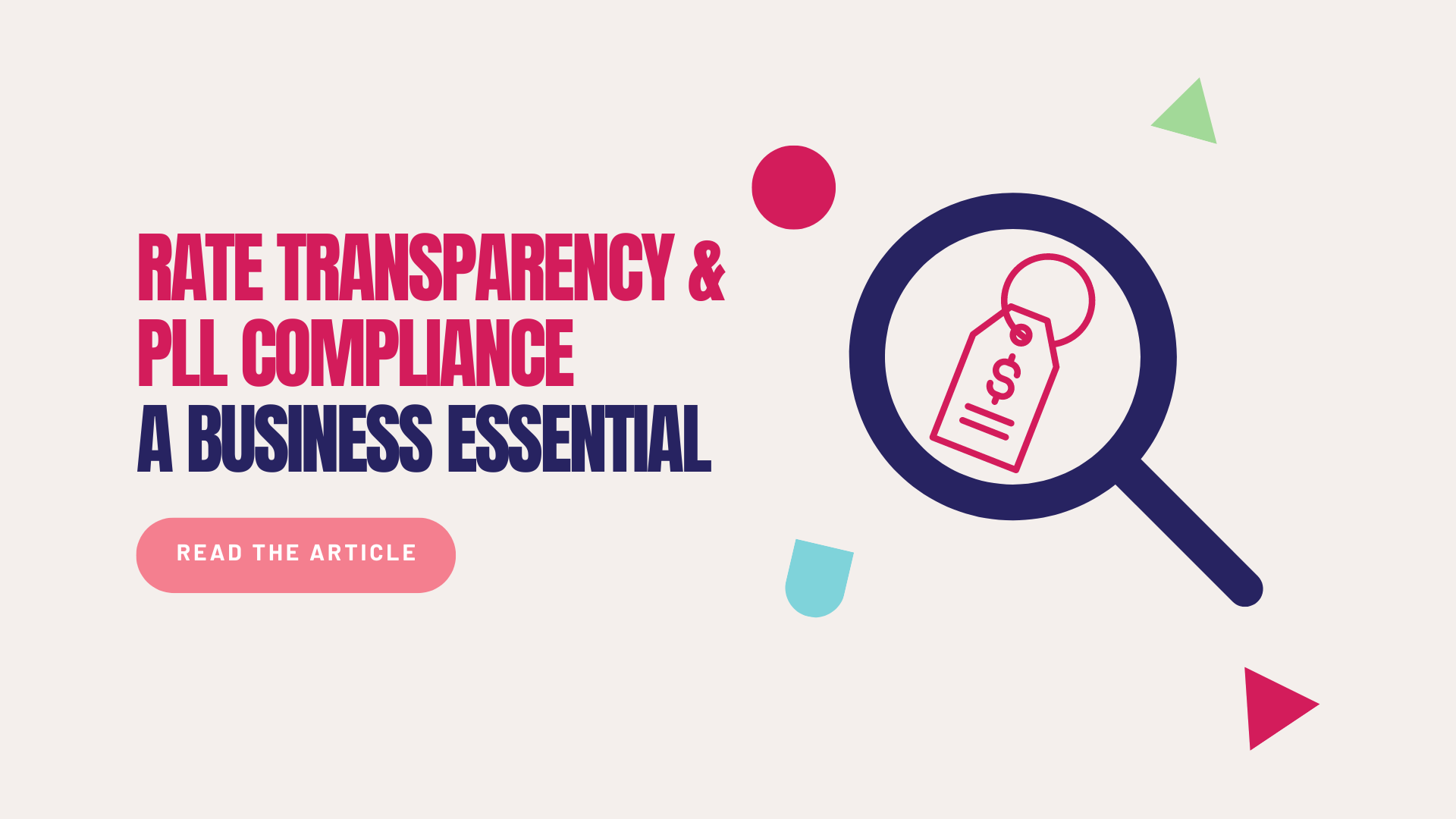Marketing compliance ensures your campaigns align with laws and ethical standards.
This article explores how tag management can help you navigate complex regulations and provides you with additional marketing compliance best practices to enhance your website’s user experience.
Table of Contents
What is Marketing Compliance?
Marketing compliance is the process of ensuring all marketing activities adhere to relevant laws, regulations, and industry standards. This includes everything from advertising claims and data privacy to product information and consumer protection.
Create a fully optimized digital experience with Digital Spice.
Request a free proposal →
What is Tag Management?
Tag management compliance refers to ensuring that the tags used on your website adhere to privacy regulations and industry standards.
Tag management streamlines marketing compliance. By centralizing tag management, businesses can better control data collection, reduce compliance risks, and ensure adherence to privacy regulations.
How to Ensure Tag Management Compliance?
Here are the best practices for achieving and maintaining tag management compliance:
1. Choose a Compliant Tag Management System (TMS)
- Vendor Compliance: Select a TMS provider that complies with relevant regulations such as GDPR, CCPA, and others.
- Privacy Features: Ensure the TMS offers features like consent management, data anonymization, and secure data handling.
2. Implement Consent Management
- Consent Banner: Use a consent banner to inform visitors about the tags and cookies used on your site and obtain explicit consent.
- Granular Consent: Allow users to provide granular consent for different types of tags (e.g., marketing, analytics, necessary).
3. Data Subject Rights
- Access and Deletion Requests: Implement processes to handle data subject requests for access to or deletion of their data collected via tags.
- Transparency: Ensure users can easily understand what data is being collected and how to exercise their rights.
4. Regularly Audit and Review Tags
- Tag Inventory: Maintain an up-to-date inventory of all tags deployed on your site.
- Periodic Audits: Conduct regular audits to review the tags and ensure they are still necessary and compliant with current regulations.
5. Ensure Data Minimization
- Limit Data Collection: Configure tags to collect only the data necessary for their intended purpose.
- Anonymize Data: Where possible, anonymize or pseudonymize data to enhance privacy.
6. Establish Clear Tag Governance Policies
- Tag Policies: Develop and enforce policies regarding the implementation, management, and removal of tags.
- Approval Process: Implement an approval process for adding new tags, ensuring they meet compliance and business requirements.
7. Documentation and Record-Keeping
- Tag Documentation: Document the purpose, data collected, and consent obtained for each tag.
- Audit Trails: Maintain detailed audit trails of all tag changes and consent records.
8. Third-Party Tag Management
- Vendor Agreements: Ensure that third-party vendors whose tags are used on your site adhere to compliance standards.
- Third-Party Audits: Periodically review and audit third-party tags for compliance with your policies and regulations.
Other Marketing Compliance Guidelines & Best Practices
Besides legal and ethical handling of user data, marketing compliance guidelines also help businesses create a more engaging and enjoyable user experience.
Some of the guidelines to keep in mind are
- Minimize Disruptive Ads: When used cautiously and strategically, pop-ups may be an effective tool for lead generation. Too many of them, however, can agitate users and decrease your returning visitors.
- Clear Messaging: Prioritize clarity over playful or branded language. Brand voice matters, but to increase engagement and improve user experience, ensure every heading and CTA button communicates the message clearly.
- Honesty & Transparency: On the topic of messaging, businesses are not only legally required to communicate their services and value proposition truthfully, but also stand to gain trust and loyalty for setting the right expectations among their audiences.
Find other relevant website compliance guides in our digital cookbook:
For a complete guide to website compliance, click here.
Ready to Create a Fully Optimized Digital Experience?
Digital Spice is a creative digital agency specialized in planning, designing, and building high-performance websites.
Contact us to request a free consultation and proposal for your project at [email protected] or click here.








